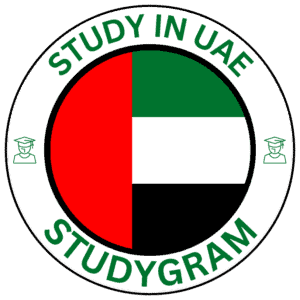
Understanding the Evolving Dispute Resolution Environment in the MENA Region
The landscape of dispute resolution in the Middle East and North Africa (MENA) is undergoing significant transformation, driven by rapid economic development, legislative reforms, and a growing preference for arbitration over traditional litigation. Middlesex University Dubai, in collaboration with Hogan Lovells, has recently published the inaugural MENA Arbitration Survey. This comprehensive report offers valuable insights into regional arbitration practices, preferences, and emerging challenges, serving as an essential resource for legal practitioners, businesses, and academic institutions engaged in dispute resolution.
Key Findings of the MENA Arbitration Survey
The survey, conducted between November 2023 and October 2024, gathered perspectives from over 100 legal professionals, including arbitrators, in-house counsel, and academics across the region. Its findings reveal evolving trends and highlight the region’s strategic positioning as a hub for arbitration, especially in construction and energy sectors.
Preference for Institutional Arbitration in MENA
One notable finding is that 61% of respondents favor institutional arbitration within the MENA region. Regional arbitration centers like the Dubai International Arbitration Centre (DIAC) and the Cairo Regional Centre for International Commercial Arbitration (CRCICA) are considered trusted venues. Such preferences reflect confidence in these institutions’ ability to provide modern, efficient dispute resolution processes that align with regional legal frameworks.
International Arbitration Seated Outside the Region
Interestingly, a significant 78% of professionals prefer arbitration seated outside MENA, with London, Paris, and Singapore emerging as the most favored locations. This trend indicates a regional inclination toward experienced, established international arbitration hubs, which often provide a neutral and globally recognized legal environment.
Arbitration Seats in the MENA Region
Within MENA, Dubai International Financial Centre (DIFC) remains the most popular arbitration seat, followed by Abu Dhabi, Doha, and Riyadh. These cities are establishing themselves as centers for arbitration, supported by legislative reforms and the development of dedicated financial zones conducive to dispute resolution.
Impact of Infrastructure Growth and Legislative Reforms
The survey underscores the anticipated increase in arbitration activity, driven by ongoing infrastructure projects and legal reforms in the region. Countries like Saudi Arabia, with its ambitious Vision 2030 plan, are likely to experience a surge in high-value, complex disputes, especially related to energy and construction sectors. These developments position the MENA region as a rising hub for international arbitration, attracting foreign investment and multinational corporations seeking reliable dispute resolution venues.
Challenges and Opportunities in MENA Arbitration
While the region has made notable progress, the survey highlights areas that require attention. Challenges include harmonizing legal frameworks, enhancing transparency, and building trust in regional arbitration institutions. Addressing these issues will be crucial to maintaining the region’s competitive edge as a dispute resolution hub.
For legal professionals and institutions aiming to stay ahead, understanding these trends is vital. Middlesex University Dubai offers specialized programs and research opportunities that explore dispute resolution and arbitration, fostering a new generation of experts equipped to navigate and shape this evolving landscape.
Role of Higher Education in Shaping Dispute Resolution Practices
Higher education institutions like Middlesex University Dubai play a key role in developing expertise in dispute resolution. The university’s law programs incorporate contemporary topics, including arbitration and international dispute resolution, preparing students for careers in this dynamic sector. As the region’s arbitration landscape evolves, academic institutions contribute by providing research, thought leadership, and practical skills.
How Middlesex Dubai Supports Professionals and Students in Dispute Resolution
Middlesex University Dubai offers a range of programs tailored to the needs of the legal and business communities. Its courses emphasize regional legal frameworks, international arbitration standards, and practical applications. Moreover, the university collaborates with global law firms and organizations, providing students with internship opportunities, workshops, and seminars led by industry experts.
If you are interested in advancing your knowledge in dispute resolution or pursuing a career in arbitration within the MENA region, exploring Middlesex University Dubai’s programs could be a strategic step. Apply Now or Enquire Now to learn more about available courses and opportunities.
Conclusion: A Future-Focused Approach to Dispute Resolution in MENA
The MENA arbitration landscape is poised for growth, driven by improving legal frameworks, infrastructure development, and regional ambition to become international dispute resolution centers. As this evolution continues, stakeholders must stay informed of trends, challenges, and best practices. Middlesex University Dubai remains committed to supporting this journey through education, research, and collaboration, equipping future legal professionals to contribute effectively to the region’s dispute resolution ecosystem.
For further insights and access to the full report, visit MENA Arbitration Survey.

